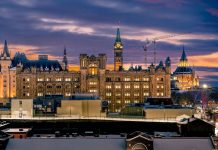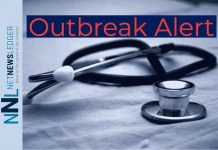OTTAWA – As of September 10 Indigenous Services Canada (ISC) is aware of these confirmed cases of COVID-19 for First Nations communities:
- 491 confirmed positive cases of COVID-19
- 42 hospitalizations
- 53 active cases
- 429 recovered cases
- 9 deaths
There are a total of 18 confirmed positive cases in Nunavik, Quebec, and all but one has recovered.
There has been a resurgence of positive case numbers among First Nations individuals living on reserve this week, similar to those being observed for the general Canadian population. This trend is moving in the wrong direction, and serves as an important reminder of the importance to remain vigilant as we enter fall. We urge everyone to follow public health measures to keep COVID-19 cases down.
Our country’s recovery from the pandemic will take time. We must continue to be careful and listen to the advice of our public health experts, which has helped us flatten the curve over the past months.
With the return to school this fall and the resumption of other seasonal activities that gradually lead indoors, it is important that we limit the number of non-essential gatherings as much as possible; failure to do so can lead to multiple cases in a community.
Individuals can help by:
- avoiding all non-essential trips in the community;
- limiting the size of group gatherings;
- maintaining physical distancing of at least 2 arm-lengths (approximately 2 meters or 6 feet);
- limiting contact with people at higher risk, such as seniors, those in poor health, or with underlying health conditions;
- wearing a non-medical mask when physical distancing is not possible; and
- following the recommended public health guidelines outlined by your province or territory of residence including guidelines on wearing masks in schools.
We are still in a global pandemic. We cannot let down our guard. Continue practising safe public health measures to reduce the spread. We must all remember to maintain proper hand hygiene and etiquette to prevent spread of illness, as outlined here:
- Wash your hands often with soap and warm water for at least 20 seconds.
- If soap and water aren’t available, use hand sanitizer containing at least 60% alcohol.
- When coughing or sneezing:
- cough or sneeze into a tissue or the bend of your arm, not your hand, and
- dispose of any tissues you’ve used as soon as possible in a lined waste basket and wash your hands immediately afterwards
- Avoid touching your eyes, nose, or mouth with unwashed hands.
At this time of year we are also concerned about influenza. We can reduce the spread of the seasonal flu by following the same practices as with COVID-19. We also know that the annual flu vaccine is the most effective way to prevent the flu and flu-related complications.
ISC is committed to supporting First Nation communities on keeping students healthy and safe as they return to school. First Nation communities will continue to make decisions on school re-opening based on what they have determined is the safest option for their students.
The recently announced $112 million national education funding will be allocated directly to First Nations, designated First Nations organizations, self-governing First Nations and Federal schools to help keep First Nation children safe, based on community priorities and needs – be it a safe return to classrooms, a transition to an online education model, or a combination of both. The funds could also support the hiring of additional teachers and support staff or meet technology needs that schools and students may have ISC is in the process of finalizing allocations and will be distributing the funding directly to First Nation communities shortly.
Additionally, last month ISC announced a further $305 million nationally through the Indigenous Community Support Fund (ICSF). This funding will include allocations directly to First Nations, Inuit and Metis, as well as an application-driven, needs-based component, which will be open to all Indigenous communities and organizations. This approach aligns with the our commitment to support Indigenous communities’ approaches to community wellness while providing the flexibility to respond to emerging needs, required to respond to an outbreak of COVID-19.
Lastly, guidance documents from the Federal Government, Provincial Government and Health Authorities have been shared to support First Nations in their assessments and preparations for safe school re-openings.
Quick facts
- Over $2.2 billion has been committed in specific support to Indigenous and northern communities and organizations.
- $285.1 million to support the ongoing public health response to COVID-19 in Indigenous communities.
- $685 million for the distinctions-based Indigenous Community Support Fund.
- $10 million for emergency family violence prevention shelters on reserve and in Yukon to support women and children fleeing violence.
- $72.6 million for health and social services support to the governments of Yukon, Northwest Territories, and Nunavut.
- $34.3 million for territorial businesses, through CanNor’s Regional Relief and Recovery Fund.
- $25 million for enhancement to the Nutrition North Canada Subsidy.
- $17.3 million in support for Northern Air Carriers.
- $15 million for CanNor’s Northern Business Relief Fund.
- Up to $306.8 million in interest-free loans to help small and medium-sized Indigenous businesses.
- $75.2 million in 2020-21 in distinctions-based support for First Nations, Inuit, and Métis Nation students pursuing post-secondary education.
- $270 million to supplement the On-Reserve Income Assistance Program to address increased demand on the program, which will help individuals and families meet their essential living expenses.
- $44.8 million over five years to build 12 new shelters, which will help protect and support Indigenous women and girls experiencing and fleeing violence. The Government of Canada will also provide $40.8 million to support operational costs for these new shelters over the first five years, and $10.2 million annually ongoing. Starting this year, $1 million a year ongoing will also be provided to support engagement with Métis leaders and service providers on shelter provision and community-led violence prevention projects for Métis women, girls, LGBTQ and two-spirited people.
- $117 million to support community-owned and micro-businesses through the Indigenous Community Business Fund
- $16 million to support Indigenous tourism businesses through the COVID-19 Indigenous Tourism Stimulus Development Fund
- $82.5 million in mental health and wellness supports to help Indigenous communities adapt and expand mental wellness services, improving access and addressing growing demand, in the context of the COVID-19 pandemic.
- $112 million to support a safe return to elementary and secondary schools for First Nations on reserves.
- While provinces and territories have jurisdiction for education off-reserve, ISC supports First Nations control of First Nations education. ISC provides funding directly to First Nations and designated First Nations organizations to support elementary and secondary education for on-reserve students.







